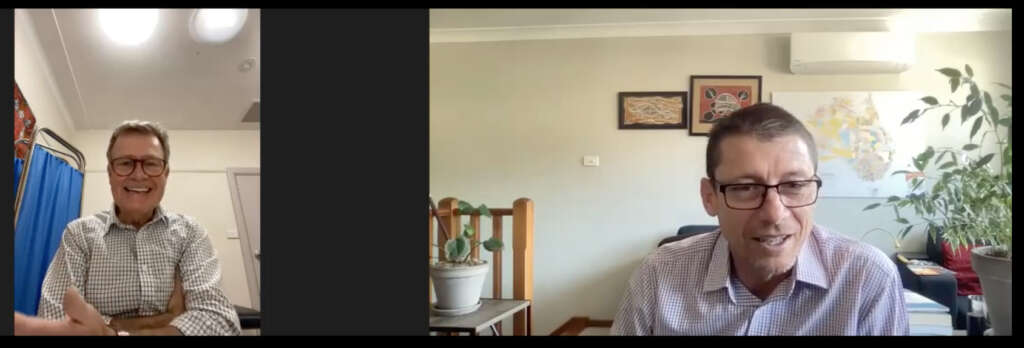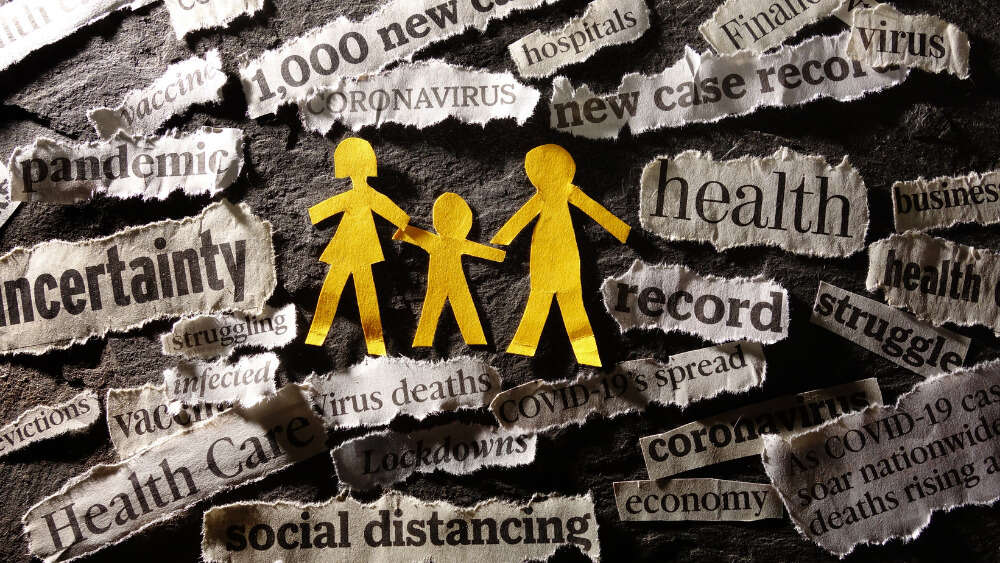Coping with COVID: advice from Australian 'doctor of the year'
From Black Summer bushfires to a pandemic
Dr Duncan MacKinnon is no stranger to disaster management. Having lived and worked in Bega on the NSW Far South Coast for 25 years, he was on the frontline of 2019-2020’s Black Summer bushfires, providing first aid and medical care to hundreds of locals and tourists.
Two years earlier, during the March 2018 Tathra bushfires, MacKinnon also played a key role in coordinating the medical response to this emergency.
So when the COVID-19 pandemic hit, MacKinnon says he was “already primed for disaster management mode”.
“We wanted to make a difference in our community in a way that was tangible.” – Duncan MacKinnon
MacKinnon runs Bega Valley Medical Practice along with about 20 other medical practitioners, including his wife Sue who is a registered nurse. He also provides anaesthetic services at South East Regional Hospital.
MacKinnon’s practice is known for extending its care to socially disadvantaged and marginalised people, such as those who are homeless, fleeing domestic violence or in the criminal system. As a Christian, MacKinnon reveals the underlying aim for his work.
“Importantly, why Sue and I settled here, why we work in the country in a small community, is because we wanted to be involved personally and professionally in people’s lives. We wanted our faith to count. We wanted to make a difference in our community in a way that was tangible,” he tells Eternity.
“In a small community, it’s a fishbowl. You just can’t fly under the radar. You can’t be anonymous. And that’s really important to us – to be consistent, to minister and to witness by our example.”
MacKinnon’s witness has certainly not gone unnoticed. He was awarded Australian General Practitioner of the Year in 2020 for being an outstanding example of “many GPs who have worked around the clock to help their communities during the drought, summer bushfires and now the COVID-19 pandemic”.
“By and large, our practice isn’t a Christian practice,” MacKinnon shares. “We prayed for years and years and years for Christian colleagues. There are probably about two or three others in our practice out of the 20 staff who work here who share our faith. But you know, my job and my wife’s job is to minister both to our patients, but also our staff and our community. So it just doesn’t stop at the front door.”
“The bushfires were just overwhelming. It had to be seen to be believed.” – Duncan MacKinnon
This was certainly evident in MacKinnon’s above-and-beyond response to the Black Summer bushfires which tore through the NSW Far South Coast on New Year’s Eve 2019.
“The bushfires were just overwhelming. It had to be seen to be believed,” MacKinnon reflects. “We knew it was coming. In late December we drove through some fires in the Batemans Bay area just before they shut the road off. The environment and the climatic conditions, the winds and the heat were such that it could happen anywhere.
“And of course it did. It happened on the Far South Coast. And it was at a time when the population on the Far South Coast was the greatest it ever is – over the Christmas holidays. There were probably 5000 tourists here camping up and down the coast, and all of those people had to go through Bega to escape the coastal fringe.”
While MacKinnon had no official responsibility to help manage the medical response to bushfire victims, he says “there was a call and a need to take some leadership.”
“Unfortunately, New South Wales Health’s approach up until that time – as it had been with the Tathra fires which happened two years earlier and we had the same experience [in 2019-2020] – was to actually lock the front door of the hospital. And what that really means is anything beyond their front door isn’t their concern, isn’t their responsibility …
“But it was important – and we had lived experience of this in the Tathra fires – that our community and primary care, in particular, supports the health system and deals with the walking wounded in a way that means [the hospital’s] accident and emergency [department] isn’t overwhelmed with things that they don’t need to be dealing with.”
“I give thanks every day for how many people were protected.” – Duncan MacKinnon
MacKinnon set up around-the-clock rosters for local GPs to provide first aid, immediate medical treatment, prescriptions and medications to locals and the thousands of tourists in town.
“We were driving around with our headlights on for three days because you couldn’t see the sunshine. The atmosphere was thick with acrid smoke. When you did see a glimpse of the sun, it was that blood-red glow in the sky. It was like the end days really,” he recalls.
The efforts of MacKinnon’s team paid off.
“We just didn’t know how many casualties, how many burn victims were going to come through the hospital doors. It was absolutely miraculous we lost so few people,” he says. “We did have deaths down here and tragic deaths. But I give thanks every day for how many people were protected during that time because [the fires] were completely uncontrollable.”
Only four people died in the December bushfires, although a total of 26 people died over four months of Black Summer fires, including 20 civilians and six firefighters.

Dr Duncan MacKinnon (left) chats with Jonathan Harris on Vimeo
The resilience gained by living through bushfire disasters has been put to good use by MacKinnon during the COVID-19 pandemic. When asked his advice on coping with the ongoing pandemic anxiety, his response is pragmatic.
“This is a war of attrition really. It’s just not one battle; it’s a rolling campaign. But ultimately, we do need to work out how we can survive it, and how we can maintain our strength and our resilience.
“I think that does mean we have to change how we behave, how we live individually and how we manage and cope with the information overload and the anxiety that it produces.”
He compares our experience of the pandemic to the fear of murder in New York City.
“So the fear of murder was a million times greater than the risk of murder in New York … The fear of the reality was a million-fold greater than the reality itself. And in many ways, fear is our enemy. Yes, it is a good motivator to a point, but then it becomes counterproductive.”
MacKinnon goes on to give three simple, practical tips on coping with pandemic anxiety:
1. Anaerobic exercise
“I just saw a colleague yesterday who has been really struggling [with anxiety]. My advice to him, and to you and your family, is that you need to do the self-care stuff really well. You need to exercise, and anaerobic exercise is more beneficial than just walking – actually puffing and panting, so breaking into a jog for a minute and then walking for another minute. It’s doable,” he assures.
2. Turn off the news
“Number two is you just have to turn the radio off. You have to not watch the news for two or three days because there’s nothing good in it. And you can pick it up in four days time and it will be the same as it is today,” says MacKinnon.
“… You will hear from your colleagues or from your peers if there’s anything significant that’s changed. But hearing [the news] and being bombarded by it doesn’t change the reality for you on the ground.
“There will be some changes that happen, maybe some local spread, and that will be of interest and importance to you and your family. There may be some different restrictions in your local government area – you need to be aware of some of those things. But we don’t all have to be aware of all of those things all the time.”
3. Listen to worship music
“I’ve been immersing myself in Christian music,” MacKinnon concludes. “I find it uplifting and worshipful. It helps me reflect on and recognise my place before my Creator. That is really enormously reassuring. It helps ground us, those with faith. It helps give us perspective. And I think we need to turn to that at this time because we need to be strong.”
Jonathan Harris is a donor care representative for Bible Society Australia and an honorary Eternity reporter. He kindly sourced and conducted this interview with Dr MacKinnon.
Email This Story
Why not send this to a friend?


